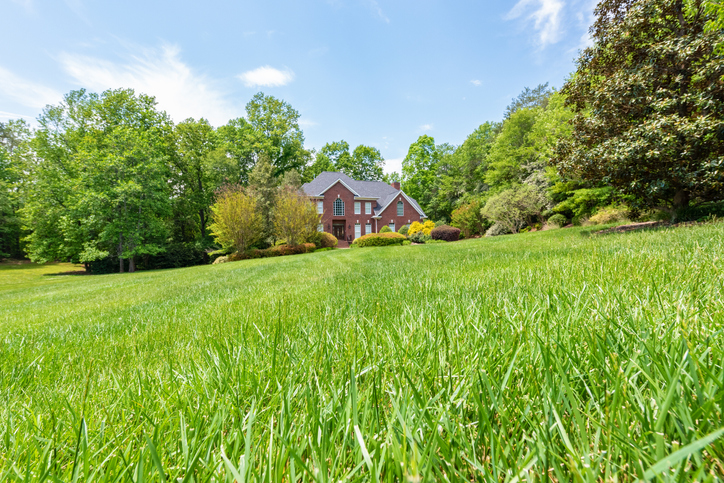Let’s look at the types of grass that grow best in Denver and what qualities you should look for when purchasing grass for your yard.
What Qualities Should You Look For?
Denver weather can be unpredictable, and your grass will need to be hearty enough to handle it. For your grass to thrive in Denver, it will need to:
- Withstand a variety of weather conditions
- Handle excessive heat
- Survive without a lot of water
- Tolerate deep snow over extended periods
You can also choose grass that prefers the sun or shade. Grasses that prefer shade will thrive, especially in north-facing yards, while sun-loving grass types will do best in southern-facing spots.
Types of Grass that Grow Best in Denver
Buffalograss
Buffalograss is a warm-weather grass that can grow in portions of the city that are lower than 6,500 feet in elevation. Each blade grows 10 to 12 inches in length and drapes over, creating a thick, green carpet. Because it doesn’t tolerate high elevations, buffalograss is a less common choice for homeowners in Denver, and it grows best in an area with low foot traffic. Additionally, this high-maintenance grass will need to be cared for year-round, but it’s hearty enough to resist moderate heat and droughts. Plant buffalograss in alkaline and loamy soil, and make sure it’s well-drained so the grass remains healthy and pest-free.
Fine Fescue
Fine fescue grows in a dense turf and it’s a low-maintenance favorite among Denver homeowners. This grass prefers shady spots, like yards with tall trees or buildings. If you plant fine fescue in a partially shaded yard, blend it with Kentucky bluegrass to get a lovely, even look. Luckily, fine fescue grows without a lot of care, and it can withstand all kinds of soil conditions, including sandy and rocky loams. Since it grows lush and thick, make sure you use a lawn mower with a sharp blade to cut a yard that’s full of fine fescue.
Kentucky Bluegrass
You can’t go wrong with growing Kentucky bluegrass in the Mile High City since it can handle all sorts of weather conditions. This grass is soft and grows quickly, filling in bare spots so your lawn is thick and bluish-green. Kentucky bluegrass loves the sun, but some varieties can tolerate full shade without a problem. The only drawback to Kentucky bluegrass is that it’s prone to forming large amounts of thatch that will need to be maintained. You can amend this by regularly aerating and dethatching your lawn. Kentucky bluegrass tends to be a cool season grass, so it prefers temperatures between 55 and 85. During our peak heat seasons, you can expect to need more water for your yard with Kentucky bluegrass.
Perennial Ryegrass
Perennial ryegrass is the perfect solution for yards that see a lot of foot traffic. Because of this, it’s a popular choice for golf courses and parks. The blades are narrow and dark green, and they’re incredibly durable year-round. It’s a low-maintenance grass variety that tolerates the cold without a problem. Perennial ryegrass is often included in grass seed blends, and it pairs well with Kentucky bluegrass. Although it can be more susceptible to pests and disease, as long as you keep a close eye on your grass, it should remain healthy and strong. Rye should be aerate at least once per year in the spring or fall. Dethatching is not required as often, but should be completed in the early spring, every 8 – 10 years.
Tall Fescue
This dense grass has an impressive root structure that grows four feet beneath the soil. It’s hardy and adaptable, making it an excellent choice for low-maintenance yards and places with lots of foot traffic. Tall fescue can handle cold weather, heat, droughts and shade, and it doesn’t need much water. As long as the soil is well-drained, tall fescue doesn’t require a specific soil type in order to thrive. It also grows slowly, and tall fescue won’t invade your garden or flower beds. Colorado State University has pioneered a new variety of fescue called Turf-type tall fescue.
When selecting the right grass for your lawn, it’s important to consider Denver’s unique climate and altitude. If you’d like to learn more about what type of grass grows best in Denver, contact us today. Our experts at American Arbor Care will help you to choose the right grass type for your yard’s needs.

